Relevant Overviews
- Communication Strategy
- Content Strategy
- Online Strategy
- Online Community Management
- Social Media Strategy
- Content Creation & Marketing
- Digital Transformation
- Change & Project Management
- Personal Productivity
- Innovation Strategy
- Surveillance Capitalism, Social media and Polarisation (Overview)
- Communications Tactics
- Psychology
- Social Web
- Media
- Politics
- Communications Strategy
- Science&Technology
- Business
- Large language models

Remember this next time you're arguing with someone on the internet:"Hey, can you mansplain any louder?""Yeah, sure!"

"the online world seem so toxic ... [because of] a small number of divisive accounts", according to a researcher in "topics such as intergroup conflict, misinformation, technology and climate change", who found that "what we’re seeing online is a warped image created by a very small group of highly active users".SOcial media is "a funhouse mirror.…
"misinformation is powerful, not because it changes minds, but because it allows people to maintain their beliefs in light of growing evidence to the contrary. The internet ... as a justification machine".Humans are "evidence foragers ... historically [that's] meant digging into a subject, testing arguments... That was the foundation on which most…
"In physics... the Observer Effect. Electrons, photons ... behave differently when under our gaze... Social media has made us both the observed and the observers, trapped in a relentless cycle of performing and watching... the line between genuine human expression and algorithm-driven self-parody has dissolved into a soup of memes, virtue vs vice…
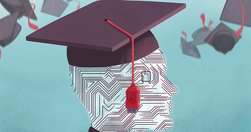
"AI can not only improve short-term productivity of organizations but can also ... increase the organization’s collective intelligence."HBR starts well by pointing out the false dichotomy between thinking "about AI in terms of automation vs. augmentation... Augmentation doesn’t avoid automation, it simply hides it, usually in some lower-level". Ex…
“About one in four people who began the experiment believing a conspiracy theory came out the other end without that belief... challenges conventional wisdom that evidence and arguments rarely help to change believers’ minds... [as they're] adopting such beliefs to meet various needs – such as a desire for control."The researchers developed "an AI…
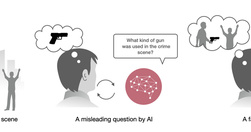
"examines the impact of AI on human false memories--recollections of events that did not occur or deviate from actual occurrences... through suggestive questioning in Human-AI interactions, simulating crime witness interviews. Four conditions were tested: control, survey-based, pre-scripted chatbot, and generative chatbot" The 200 people in the st…
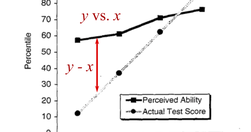
When I first heard of the Dunning-Kruger effect I immediately created a tag for it - I just knew it was was significant. As the author here points out, it was both "too juicy to not be true. Everyone ‘knows’ that idiots tend to be unaware of their own idiocy".Unfortunately, it's poor science: "if you carefully craft random data so that it does not…
Good piece on how "the free speech warriors... [behind] Truth Social and the ... decay of Twitter ... the “Festung” cities of unrestricted expression... still not happy... shouting into an echo chamber isn’t nearly as satisfying as they thought it would be... What they’re really after ... is our attention... The thrill of provocation quickly fade…

Applying Dawkins' selfish gene perspective to the evolution of AI
"what causes the flow state, and what happens in the brain... a new study claims to have answers".There were 2 theories:"Hyperfocus... two brain networks unlock the flow state: the default mode network (DMN)... involved in things like daydreaming... spikes the most when we’re not engaged in any tasks" and "the executive control network (ECN), whic…

What happens when we make machines "that we can’t help but treat them as people"?While "GPT-4o doesn’t represent a huge leap ... it more than makes up in features that make it feel more human... an ability to “see” and respond to images and live video in real time, to respond conversationally ... to “read” human emotions from visuals and voice, an…
You're in a meeting and the presenter asks, “Does anyone have any questions?”. Do you look around, see "no one else raising their hands, and then chose to pass on the opportunity to clear up your confusion?". Congratulations, you've just fallen for pluralistic ignorance, and it explains a lot.It is when "you feel like you’re different from everyon…
"does appealing to the (non-existent) “emotions“ of LLMs make them perform better? The answer is YES"
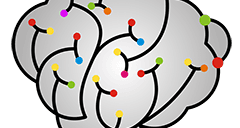
I asked Questy.ai, a startup, the following question: What is the best communication technique for reaching someone who believes many conspiracy theories, and sees all arguments as further evidence of conspirary?A summary of its response, which contained cited references:"When engaging with someone who holds fast to conspiracy theories and views …
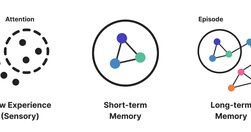
from Alice Albrecht, who "runs re:collect, a startup building an AI-powered thought partner:... advances in AI and cheaper compute lower the bar for getting from a creative idea to a final output... though, we still need to provide the initial seed... and ... judge whether we’re heading in the right direction. We’re still the creative directors o…

A YANSS interview with Adam Grant, author of Think Again: The Power of Knowing What you Don’t Know. Generally an "extensive exploration of how to rethink your own thinking", including his WorkLife podcast interview of Margaret Atwood on procrastination.(When annotating a podcast I really like a transcript, but there was none for this episode so I …
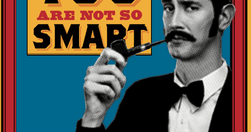
"Feeling stuck?" This YANSS podcast is with "professor, author, therapist, and speaker Britt Frank, a trauma specialist who ... helps clients to get out of the feeling of being stuck."This was well-timed, because stuck is something I've been feeling for a while now. Perhaps unjustifiably, but nevertheless her book's description strikes a chord: wh…

Cory focusing not on the content of conspiracy theories, but "the significance of those beliefs", as we rarely go beyond dismissing "irrational people as having irrational beliefs... a mistake. The stories we tell one another are a kind of Ouija board... " telling us not about reality, but revealing "our internal, unspoken anxieties and aspiration…

"more than 200 studies that show the positive effect of writing on mental health... but researchers don’t completely agree on why or how".One idea: "safe, confidential way to disclose emotions that were previously bottled up". But "recent studies show an increase in self-awareness ... could be the key". Turn your attention inward towards the self…
A "perverse downstream consequence for debunking... being corrected by another user for posting false political news increases subsequent sharing of low quality, partisan, and toxic content".Looks like evidence for the backfire effect: "Direct correction ... backfires by making people feel defensive or focusing their attention on social factors (e…
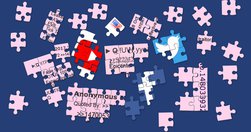
“It’s so easy to feel you’re special or in on something.” - James Wolfe, 45, who was "introduced [to Qanon] by a friend to the idea in late 2017... [when he] was recently unemployed and recovering from a serious physical injury", and quickly "started spending as much as eight hours a day" before recovering "from QAnon after seeking counseling for…
After pointing out the evolutionary reasons for moral outrage's existence - to shame & punish wrongdoers - this 2017 Nature paper describes a psychological framework (triggering stimuli -> Responses -> Outcomes) for understanding how online social networks "change the expression of moral outrage and its social consequences?"It reveals how "digital…

"psychologists tried to get a handle on the personality types that might be prone to outlandish beliefs" as over a third of Americans believe the Chinese "engineered the coronavirus as a weapon", and around half "firmly believe at least one discredited conspiracy theory... conspiracy theories are playing a bigger role in people’s thinking and beha…

labelling delusions as irrational suggests that all ‘normal’ cognition is rational... new theory suggests delusions emerge from specific processes in our ‘coalitional psychology’ ... mechanisms ... understand our social environment...most delusions involve social content... Beliefs serve a significant social purpose... cooperate with each other, …

to divert someone away from prejudice and toward greater acceptance of others ... “Deep canvassing,”... “giving them grace.”... to hear someone say something that can be hurtful, ... think about how to ... connect with them...have patience with them, ask them to reflect on their life, and listen... many communities have a call-out culture... conde…

counties that had voted for Donald Trump in 2016 exhibited 14% less physical distancing... higher Covid-19 infection and fatality growth rates ...the hormone oxytocin... promotes bonding... plays a role in trust... When participants trusted and felt trusted, oxytocin levels ... jumped... Trust just feels good... But risky if we give it to the w…

Covid-19 case numbers are now spiking in many counties across West Texas ... [but] resolve of ... skeptics appears to be stiffening... the denial of facts is often rooted in identity and belonging, not in ignorance ...people who deny science ... trying to uphold membership in ... a political or religious affiliation or some other group ... a commu…

echo chambers and epistemic bubbles... systematically exclude sources of information... exaggerate their members’ confidence in their beliefs... work in entirely different ways... epistemic bubble is when you don’t hear people from the other side. An echo chamber is what happens when you don’t trust people from the other side...‘epistemic bubble’ …

all recorded, rendered as data, processed, analysed, bought, bundled and resold like sub-prime mortgages...not some dystopian imagining of the future, but the present... the totality of information about our every thought, word and deed... traded for profit in new markets based on predicting our every need – or producing it... tech giants unilate…
Relevant Overviews
- Communication Strategy
- Content Strategy
- Online Strategy
- Online Community Management
- Social Media Strategy
- Content Creation & Marketing
- Digital Transformation
- Change & Project Management
- Personal Productivity
- Innovation Strategy
- Surveillance Capitalism, Social media and Polarisation (Overview)
- Communications Tactics
- Psychology
- Social Web
- Media
- Politics
- Communications Strategy
- Science&Technology
- Business
- Large language models